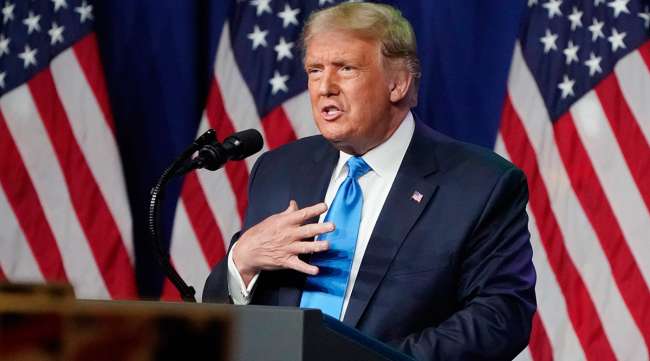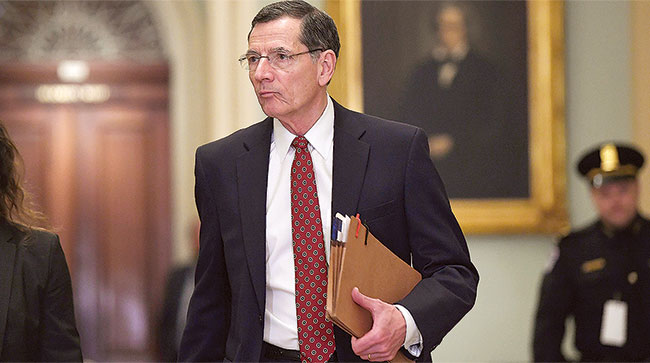Senior Reporter
Trump Touts Infrastructure Permitting Reforms

[Stay on top of transportation news: Get TTNews in your inbox.]
President Donald Trump during an address with industry stakeholders touted the administration’s recent aim at advancing infrastructure projects through environmental permitting changes.
At the 2020 Council for National Policy meeting Aug. 21, the president insisted that permitting reforms would help advance large-scale highway projects.
“To build a highway in this country, it could take, in certain places, 18, 19, 20, even 21 years to get approved,” Trump said. “This is not even thinkable. And we’ve got it now down to two, and we’ll have it down to probably one. And it may get rejected for safety reasons or for environmental reasons. That’s OK; it may happen. But we have it down — we will soon have it down to one year from as much as 21 years. We have cases that have just been disastrous.”
“We’ll have it down to one year to build a highway. You can do it all in one year. It doesn’t have to take 21 years and cost 100 times more. Literally, I’ve seen 100 times more,” he went on.
The administration took aim at the National Environmental Policy Act and announced a final rule meant to modernize and accelerate environmental reviews to enhance efficiency and affordability. The move would ideally facilitate a two-year period for completion of certain environmental impact statements. NEPA’s proponents say it plays an essential role.
RELATED: ATA Lauds Trump’s Environmental Permitting Reforms
On Capitol Hill, several Republican policymakers endorsed the administration’s position. They included Rep. Sam Graves (R-Mo.), ranking member on the Transportation and Infrastructure Committee.
“The slow, inefficient and costly federal review and permitting processes continue to be an impediment to the improvement of America’s infrastructure. I commend the administration for its efforts to modernize the decades-old NEPA process,” Graves said in July. “Updating NEPA will save taxpayers money while maintaining necessary protections for the environment, public safety and human health.”
“President Trump is cutting red tape to help get our economy back in the black,” added Sen. John Barrasso (R-Wyo.), chairman of the Environment and Public Works Committee. “These updates will make the National Environmental Policy Act work better for the American people. Right now, important construction projects are being slowed down because of lengthy government permitting processes and lawsuits. The administration is making this process more predictable and efficient. We can protect the environment and move our economy forward at the same time. This rule gets that done.”

Barrasso (Susan Walsh/Associated Press)
Last year, Barrasso’s panel gave bipartisan approval to a five-year, $287 billion highway policy bill that, among other things, proposed to streamline environmental permitting regulations. The measure, not yet scheduled for a floor vote, also would propose climate change-centric provisions.
On the House side, lawmakers this summer passed a $1.5 trillion infrastructure measure sponsored by Democrats that included a multiyear reauthorization of a 2015 highway policy law. Congressional Democrats have opposed the administration’s directive on the NEPA process.
“As humanity faces the greatest environmental challenge of our time, the fight to save our planet from climate change, we must work together to find lasting solutions. This highly divisive, harmful and partisan rollback will not last,” said Sen. Tom Carper (D-Del.), the EPW panel’s ranking member.
Senate Republicans have criticized the House-passed measure as neither the Senate nor the House bills include a long-term funding proposal for highway programs. Meanwhile, the White House this year has not unveiled such a funding proposal for highway programs.
The 2015 highway policy law, called the FAST Act, expires at the end of September.
A federal highway account known as the Highway Trust Fund relies on insufficient revenue from the federal fuel tax. The 24.4 cents-per-gallon diesel tax and 18.4 cents-per-gallon gas tax were set in 1993.
Want more news? Listen to today's daily briefing:
Subscribe: Apple Podcasts | Spotify | Amazon Alexa | Google Assistant | More




